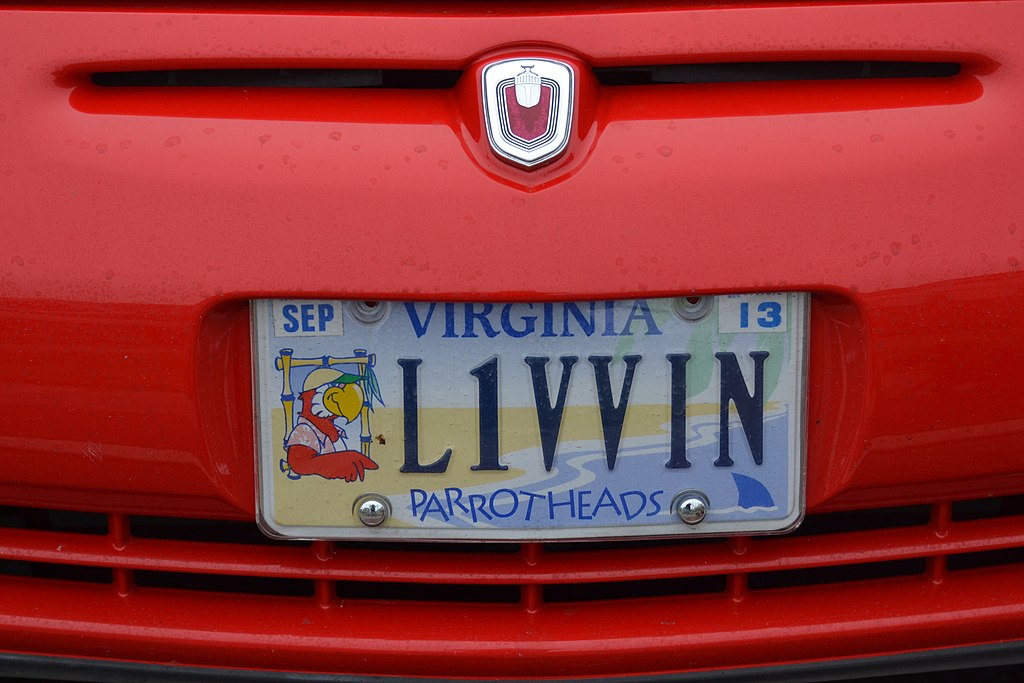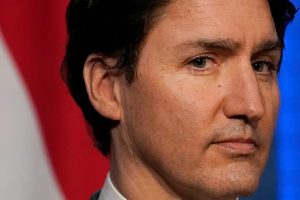If politics makes strange bedfellows, defending free speech sends one down some equally odd paths. The First Amendment and laws protecting speech exist for every thing that can be said, but end up being tested at the margins of what society tolerates in the name of free speech. A recent case in Hawaii, involving a car license plate, is a perfect example.
Like most states, Hawaii issues specialty/vanity license plates where the owner can chose his own letters or numbers. The only restrictions are that the letters/numbers not be “misleading” or “publicly objectionable.” Otherwise pick your combination, pay the fee, and you have your unique license plate, such as LUV YOU.
That was the plan of Edward Odquina, who runs a web site named www.fckblm.org in support of his media business that shares those same initials, Film Consulting Krav Maga BLooMberg. Odquina also elsewhere on his site claims the initials stand for Fight Communism & Knuckleheads Bitch Liberal Marxists. He also does not care much for the Black Lives Matter movement. He applied for, and was issued in 2021, a FCKBLM car license plate which he displays on his vehicle alongside a Trump 2024 placard and other patriotic insignia.
At some point the state of Hawaii claims it received unspecified “complaints,” and Odquina was ordered to surrender the plate. He refused. Until he gives in, he cannot renew his car registration and is subject to citation and seizure of his vehicle. Odquina filed a lawsuit against the county and its attorney general, claiming they infringed on his First Amendment right to free expression.
Specifically, the 23-page lawsuit claims Hawaiian authorities failed to define the terms “misleading” or “publicly objectionable.” He further holds that his application for FCKBLM was approved and the plate was issued, and that the law includes nothing in it to allow that decision to be re-reviewed if “complaints” are received, even though a complaint phone line exists.
The core of the suit focuses on the Hawaii statute restricting messages allowed on personalized plates as being overly broad (a “void for vagueness” says the filing), and that the state, city, and county have all failed to adopt administrative rules to define such terms and create a process for making determinations. Instead, the suit says, the city and state have created a process allowing bureaucrats to make the determinations based on their individual and personal opinions with no recourse or remedy. The suit asks the court for an order to prevent the government officials from enforcing a ban on “misleading or publicly objectionable” license plates until new rules and procedures can be created.
“He wants to be able to express himself, which is what the statute allows, the statute allows that you can pick any six letters, up to six letters, and any combination that you want to convey a message,” said Odquina’s attorney Kevin O’Grady. O’Grady says his client disagrees with Black Lives Matter’s positions and is also using the license plate to promote his business. At issue is viewpoint (content) discrimination, when a state offers a venue, such as specialty license plates, for some groups to convey their messages, but does not permit others like Odquina to express their views. Presumably Hawaii would not object to YEA BLM.
Odquina has precedent on his side when it comes to courts striking down state and local government restrictions on laws banning offensive license plates. In 2020, a federal judge struck down a similar law to Hawaii’s in California after it was challenged by people who had been denied requests for plates.
The California case shows that that state has a much more extensive and well defined list of things that it considers misleading or objectionable compared to Hawaii, including terms with sexual connotations, of lust or depravity, or vulgar terms, a term of contempt, prejudice, or hostility, an insulting or degrading term, a racially or ethnically degrading term or is a swear word or term considered profane, obscene, or repulsive, or has a negative connotation to a specific group, misrepresents a law enforcement entity or is a vulgar foreign or slang word. The California law goes on to specify procedures for adjudicating all that, including use of the Urban Dictionary and lists of gang symbols, and for how a plate may be taken back after issuance.
Yet despite its bureaucratic thoroughness compared to Hawaii’s almost haiku-like rendering of the same intent, California lost its case. In ruling against the state, the District Court judge wrote the Supreme Court has repeatedly held “the public expression of ideas may not be prohibited merely because the ideas are themselves offensive to some of their hearers.” The plaintiffs were allowed to keep their plates OGWOOLF, SLAAYRR and QUEER. BO11LUX was still rejected because the configuration “has a discernible sexual connotation or may be construed to be of a sexual nature.”
The issue is ripe for another pass by the Supreme Court. A New Hampshire court ruled in 2014 that the state couldn’t ban a plate that read COPS LIE. A Rhode Island judge ruled that a motorist had the right to display a license plate that read FKGAS. But Texas was able to bar FU COVID, NOPENIS, and CNN LIES from its vanity license plates. Then again, Maine allowed KISMYAS.
The critical finding in the California case is that license plates are to be considered private speech, a statement by the user protected by the First Amendment, and not an expression of government, even though they are technically government property. The court held that the government, by making vanity plates available for sale, gave citizens the right to consider what they say as a private expression of opinion or support. The court said any restrictions on that expression must be both viewpoint neutral and reasonable.
This is all in contrast to the Supreme Court, which held specialty license plates are government speech, immune from First Amendment challenges, thus setting up one of the principle legal tussles Hawaii and Odquina will enjoin — whose speech is it, his or the government’s? Odquina meanwhile continues to drive around town expressing himself.


















